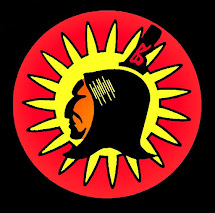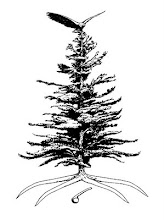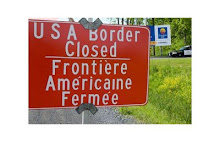I was a little surprised that the event was generating a decent crowd but then I realized that Secretary-General, Ban Ki-moon, himself was giving an address to start us off. His words were strong and supportive as were remarks from the Under-Secretary-General for Economic and Social Affairs (the entire event was webcast by the UN and can be viewed at http://bcove.me/pqzmwpkm). As all the "Indigenous" events at the UN are, this one too was dominated by Native people from here and, yes of course, I managed to get to a microphone as well. As I often do, I raised the question about where the rubber meets the road on the Declaration of the Rights of Indigenous Peoples (UNDRIP); where does it get teeth to match its strong words and detailed restrictions.
I don't go to the UN often but when I do, I usually leave with a hollow feeling. I never get the sense that the international community is ever really going to address the American genocide that still continues today. But a funny thing happened this trip. after hearing some comments from one of the panelists, Professor J. Kehaulani Kauanui from Hawaii via Wesleyan University, and engaging her a bit in my comments, I had a change of heart. Professor Kauanui mentioned two things about the UNDRIP. First she acknowledged the absence of the force of law regarding the Declaration. She mentioned other proclamations, resolutions and announcements, including the US apology for the crimes committed against the people of Hawaii, and how courts have deemed them inadmissible or of no legal consequence, just words. But she expressed the significance of them anyway. And it hit me that it is not the US or Canadian courts that need to give these ratified documents force. It is us that need to. The only true court of the people is the court of public opinion and it is in this court that we must prosecute those that violate the rule of law, Natural Law. That is really all this document acknowledges; the simple laws of nature and birthright. We need to cite every article and section that is violated every time they are violated. No matter what nation it is or what state or province it is that violates it.
The other suggestion Ms. Kauanui made was to bring the education of the UNDRIP local. Get the all those universities, most of which sit on negotiated parcels of our lands, to host events where Native and non-native people can learn how the world views our issues, including state, provincial and federal officials. This is how WE give the Declaration force. US and Canadian courts are not the places for our issues to be "remedied". We don't need their law makers to add to the long list of ambiguous, or otherwise meaningless, "Federal Indian Laws". To the contrary; their courts need to stop trying adjudicate our sovereignty away and their legislatures need to stop trying legislate sovereignty out and "our special status" in.
It is simple, just follow what every UN nation has agreed to; the UNDRIP! They all signed it. We now need to hold them to it. We need to give it force. And let those nations who are concerned that the UNDRIP may conflict with their constitutions, laws, or worse yet, their religions, have that conflict exposed. Let us show the rest of the world the world we live in and let us show the clear genocide that continues still today in spite of this Declaration.













![-[]-[]-/\-[]-[]-](https://blogger.googleusercontent.com/img/b/R29vZ2xl/AVvXsEjLoXmKO8PJVQ5pZ2q7GX7nFKw8H2tb28dxt-o10FUBNtOGszWhWoLB7tgjtMgtISpuSxNW3fcDxfuSS2DqojsdjNJ1lVggyUS374PnzsDbOhk4ukvtTunFQcyfkckZeBzcLbri4LDYN_E/s214/29-03-A-voice-from-the-Akw-.jpg)




